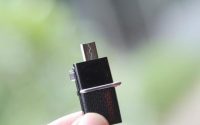Solution for Avoiding Computer Virus Which Make Data Loss Happen
 Today we use our computers to do so many things. We go online to search for information, shop, bank, do homework, play games, and stay in touch with family and friends. As a result, our computers contain a wealth of personal information about us. This may include banking and other financial records, and medical information – information that we want to protect. If your computer is not protected, identity thieves and other fraudsters may be able to get access and steal your personal information. Spammers could use your computer as a “zombie drone” to send spam that looks like it came from you. Malicious viruses or spyware could be deposited on your computer, slowing it down or destroying files.
Today we use our computers to do so many things. We go online to search for information, shop, bank, do homework, play games, and stay in touch with family and friends. As a result, our computers contain a wealth of personal information about us. This may include banking and other financial records, and medical information – information that we want to protect. If your computer is not protected, identity thieves and other fraudsters may be able to get access and steal your personal information. Spammers could use your computer as a “zombie drone” to send spam that looks like it came from you. Malicious viruses or spyware could be deposited on your computer, slowing it down or destroying files.
By using safety measures and good practices to protect your computer data to avoid data loss situation, you can protect your privacy and your family. The following tips are offered to help you lower your risk while you’re online.
Install a firewall
A firewall is a software program or piece of hardware that blocks hackers from entering and using your computer. Hackers search the Internet the way some telemarketers automatically dial random phone numbers. They send out pings (calls) to thousands of computers and wait for responses. Firewalls prevent your computer from responding to these random calls. A firewall blocks communications to and from sources you don’t permit. This is especially important if you have a high-speed Internet connection, like DSL or cable.
Some operating systems have built-in firewalls that may be shipped in the “off” mode. Be sure to turn your firewall on. To be effective, your firewall must be set up properly and updated regularly. Check your online “Help” feature for specific instructions.
Use anti-virus software
Anti-virus software protects your computer from viruses that can destroy your data, slow down or crash your computer, or allow spammers to send email through your account. Anti-virus protection scans your computer and your incoming email for viruses, and then deletes them. You must keep your anti-virus software updated to cope with the latest “bugs” circulating the Internet. Most anti-virus software includes a feature to download updates automatically when you are online. In addition, make sure that the software is continually running and checking your system for viruses, especially if you are downloading files from the Web or checking your email. Set your anti-virus software to check for viruses when you first turn on your computer. You should also give your system a thorough scan at least twice a month.
Use a strong password – and keep it to yourself
Protect your computer from intruders by choosing passwords that are hard to guess. Use strong passwords with at least eight characters, a combination of letters, numbers and special characters. Don’t use a word that can easily be found in a dictionary. Some hackers use programs that can try every word in the dictionary. Try using a phrase to help you remember your password, using the first letter of each word in the phrase.
Be careful if you share files
 Many consumers enjoy sharing digital files, such as music, movies, photos, and software. File-sharing software that connects your computer to a network of computers is often available for free. File-sharing can pose several risks. When connected to a file-sharing network, you may allow others to copy files you didn’t intend to share. You might download a virus or bit of spyware that makes your computer vulnerable to hackers. You might also break the law by downloading material that is copyright protected.
Many consumers enjoy sharing digital files, such as music, movies, photos, and software. File-sharing software that connects your computer to a network of computers is often available for free. File-sharing can pose several risks. When connected to a file-sharing network, you may allow others to copy files you didn’t intend to share. You might download a virus or bit of spyware that makes your computer vulnerable to hackers. You might also break the law by downloading material that is copyright protected.
Final Though
These are what we got to protect computer from virus. How about yours? Just share yours on our site. Or you may also visit our official website uFlysoft studio to get more post of data protection.

